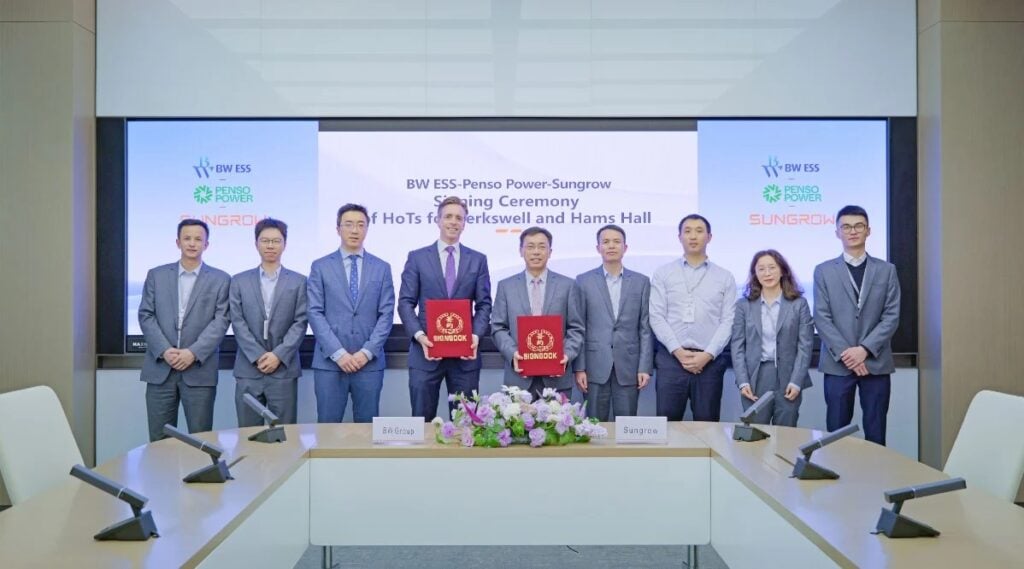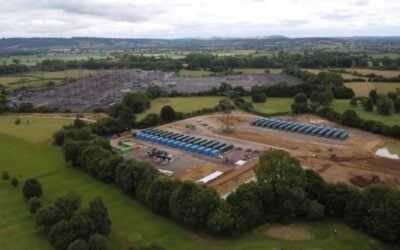
PV inverter and battery energy storage system (BESS) provider Sungrow has signed an agreement with two major developers to supply BESS systems for an upcoming UK storage project.
Sungrow will supply 280 sets of its PowerTitan 2.0 liquid-cooled BESS units for the Hams Hall energy storage project, which is currently under development in North Warwickshire, England. The Hams Hall project, which was granted planning consent in May 2022, is a 350MW/1750MWh BESS project by Penso Power and Luminous Energy, funded by BW ESS.
Enjoy 12 months of exclusive analysis
- Regular insight and analysis of the industry’s biggest developments
- In-depth interviews with the industry’s leading figures
- Annual digital subscription to the PV Tech Power journal
- Discounts on Solar Media’s portfolio of events, in-person and virtual
While all three of these companies are joint shareholders in the development, Penso Power is overseeing the project’s development and will manage the project once it is operational. Penso Power has large ambitions for the project, claiming that there is scope for greater than five hour duration services from the project in the future.
This is not the first time Sungrow has teamed with BW ESS and Penso Power on a major BESS project; Sungrow supplied the 100MW/330MWh Bramley project, currently under construction in Hampshire, with its PowerTitan 2.0 liquid cooled BESS, the first project in Europe to use these systems. The PowerTitan 2.0 systems are noteable for combining a 2.5MW Power Conversion System and a 5MWh battery into a single container, a major space-saver for BESS developers.
Sungrow has also recently joined forces with SSE Renewables, announcing last month that it had signed a supply agreement for the 320MW/640MWh Monk Fryston project in the north of England.
Meanwhile, Sungrow has also this week announced the launch of a new home-sized energy storage solution, the SBR064, designed to be paired with Sungrow’s own PV inverters. This smaller system allows homeowners to reap the benefits of energy storage with an expandable system – the initial unit has a 6.4kWh capacity, but can be linked with up to seven other modules that increase capacity by 3.2kWh each, offering a total expandable capacity of 25.6kWh.
This story first appeared on Solar Power Portal.






